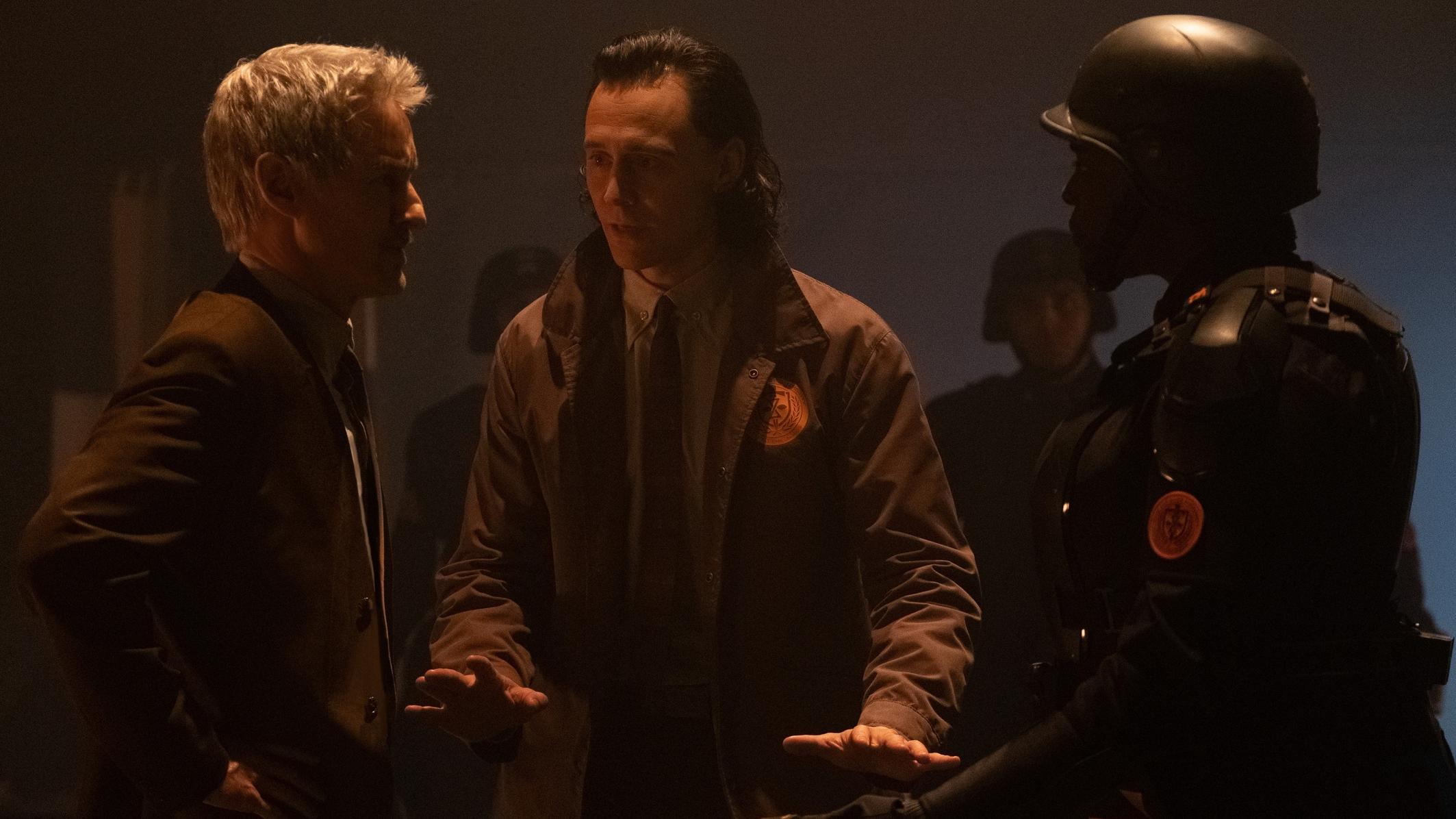
The first two episodes blend time-travel hijinks and lively existentialism for a very promising start to this latest Disney+ MCU series.
Premiering tomorrow (or tonight at midnight) on Disney+, creator/head writer Michael Waldron and director Kate Herron’s Loki is off to an exciting start. The third of this year's Disney+ MCU shows again centers on a character who was supposed to have died in the “Infinity Saga.” That Loki still exists despite getting his neck snapped by Thanos in the prologue of Avengers: Infinity War is a core narrative conflict. WandaVision and The Falcon and the Winter Soldier partially acted as season-long funerals for their dearly-departed heroes (Paul Bettany's Vision and Chris Evans' Steve Rogers, respectively). I am curious about whether Hiddleston's return as at least one "variant" of Loki will remain permanent by the end of episode six.
We start with a quick "for those who came in late" replay of the time-traveling events of Avengers: Endgame. 2012 Loki (having just been bested by the Avengers in the "Battle of New York") stole the Tesseract and vanished into the ether. Marvel's favorite genocidal anti-hero quickly gets caught by the Time Variance Authority. This bureaucratic organization (shades of Brazil and Jupiter Ascending) monitors the timeline. Still, Loki is spared from erasure by Special Agent Mobius M. Mobius (Owen Wilson), who wants Loki's help in catching an especially dangerous time criminal. This is all set up in an exposition and dialogue-heavy first episode. In contrast, the second episode is more "adventure of the week," even if it ends with a potential (slight) alternation in the status quo.
Which episode you prefer will vary in taste. Wilson turns out to be an inspired casting choice, acting not as a befuddled and easily impressed witness to Loki's shenanigans but as a seen-it-all, dispassionate (but still invested) foil who (like everyone else in the TVA) looks at the world-altering events of the MCU as "Tuesday." He's precisely compassionate enough to want to metaphorically save Loki's soul (at least to the extent that it furthers his objectives) but not remotely impressed by Loki's not-so-mischievous attempts at world domination. The result is a genuine acknowledgment that the genocidal Loki seen in The Avengers doesn’t quite jibe with the violent prankster of the Thor movies. It's also yet another attempt to make The Dark World an essential chapter of the MCU.
WandaVision was a parable for the danger of nostalgic comfort food entertainment as a way of putting off post-traumatic healing. The Falcon and the Winter Soldier tried to deal with a Marvel/DC-obsessed pop culture amid continued institutional racism and a renewed embrace of strongman authoritarianism (both in and outside law enforcement). I am curious whether pop culture's varying ideas about Loki as a character and how the fandom changed his MCU fate (he was supposed to stay dead in The Dark World) will be a meta-commentary running through the show. Moreover, I am equally curious if it'll maintain true to whatever more profound contextual thesis it attempts to argue or whether (like its MCU television predecessors) it fumbles the ball near the end zone for the sake of comforting status quo.
Deeper ambitions aside, the show works as polished entertainment. Hiddleston can play this character in his sleep, and to his credit that he doesn't. He relishes the new sandbox as Loki is brought low, rendered powerless and surrounded by superior beings who neither fear nor respect him. The way they set up what I assume will be multiverse-creating hijinks, using a cartoon on par with Jurassic Park's Mr. DNA, is as inspired as it is meme-friendly. Even with all the sci-fi nonsense and time-travel adventure, the most compelling moments in both episodes are when Hiddleston and Wilson sit at a table and chat about life, the universe and everything. There is arguably no effect more special than good actors delivering good conversational dialogue about interesting subjects.
I don’t know where Loki is going in terms of plot or character. Yes, this is an attempt to monetize further a fan-favorite character who should have bled out in the dark world eight years ago. However, the highest compliment I can offer is that Waldron and Herron seemingly viewed the notion of a Loki television series as a “How do we justify this?” challenge rather than a “We know you’ll watch it anyway” crutch. Whether it lives up to the promise of its first act, I am invested in the interactions between its two lead actors and the promise of crime caper hijinks mixed with Legends of Tomorrow-style adventure. Let’s hope that Loki is more willing than its MCU televised predecessors to commit to the bit.







